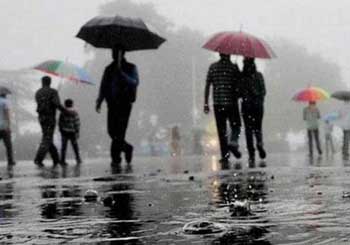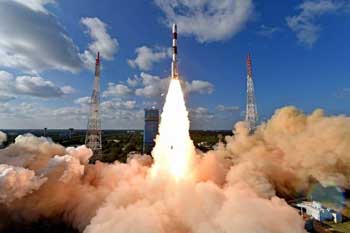– Dr .Naaznin Husein –
The COVID Pandemic has been making a perfect storm for global malnutrition; the crisis has damaged the nutrition status of many vulnerable groups through multiple mechanisms. We can expect a dangerous decline in the quality and quantity of nutritious diet. This may particularly be true for people who are red containment zones or low socio-economic strata.
Putting it in a nutshell, we can say that COVID has directly and indirectly affected and threatened nutritional security. It may be prudent to understand that during the lockdown and even post lockdown travel related to health is not banned most people are avoiding all the emergency check-ups, preventive care such as nutritional counselling, delay of elective surgery, supplementation, immunization and these itself may have a direct impact on their health. This situation gets complicated particularly in vulnerable patients like those suffering from cancer, renal disease and Diabetes where there is already an additional burden of the disease.
The onset of the monsoon season has added on to the prevailing Myriad of challenges. Each year unpredictable monsoon diseases spike up cases of special malaria, diarrhoea and other tropical infections, thus complicating the COVID infection harshly. Limited evidence and research of the pandemic increases the unknowns of Monsoon related Diseases
In a very recent Indian study published, there seems to be a direct impact on the mechanism through which climate flux can affect nutrition and transmission of water-borne diseases such as viral infections. Studies demonstrate a direct impact of excessive rainfall, associated with increased contracting diarrhoea. Exposure to climate shocks can particularly be very harmful to the vulnerable with reduced intake of food and contraction of infectious diseases; it makes it more susceptible to undernutrition or infection.
An inadequate diet, economic hardships posed due to COVID pandemic affect the overall nutrition of the household. There are increased chances of financial reallocations for medical expenses to treat family members, thus drop in food budgets. In this troubled state of affairs, the cheapest form of energy which is purchased is refined carbohydrates and sugar may adversely affect immunity. Skipping or skimping protective foods due to its higher cost, especially the protein foods like your eggs, milk, meats, legumes and pulses is often reported.
Reduced immunity increases the chances of infection Both from COVID and Monsoon’s infection creating a vicious complex cycle. The DINI AXIS is a vivid scale to understand this phenomenon.
COVID crisis has also made the food ecosystem system fragile. Any breakdowns in the food chain from farm to the traders to the final retailers negatively impact the cost to the consumer.
A precarious monsoon makes things further worse, as we know that the incidents of influenza, malaria, dengue is extremely high all this causes a weakening of the digestive system. In Ayurveda, it is often said that as the season changes (Ritucharya) the diet also needs to change.
Thus the need of the hour is a prudent change in our dietary habits and lifestyle.
Food Safety and Hygiene are of Paramount importance. Choose food only from safe and hygiene rated home delivery or pick up restaurants. Ensure when parcelled food arrives, there are no leakages in the pack, as it may be caught contact with rainwater. Keep your temptations at Bay and avoid eating chutney with samosa or chaat from the roadside.
Ensure carrying fresh homemade food and safe snacks like nut-based chikki, Makhana’s(Foxnuts) or Kurmura’s (Rice Puff)
Wash all the fruits and vegetables, avoid consumption of green leafy vegetables. When buying vegetables like cauliflower, broccoli, cabbage, etc. look for the larvae and the worms. Use smaller legumes which are easy to digest like your moong dal and the masoor and the Moth. Incorporate judicious use of traditional spices like ginger, garlic, pepper, cinnamon, and asafoetida can also help to increase immunity. For non-vegetarians, you can choose lean eggs, have lean meats like poultry in form of a soup or hot stew rather than heavy curries.
Heighten your immunity by including whole grain cereals and millets with high polyphenol content. Including zinc and magnesium-rich nuts and seeds may be beneficial. Evidence-based studies indicate Addition of ginger daily is antimicrobial and beneficial in monsoons.
Ensure building on immunity with vegetables like tomatoes, bell peppers, gourd vegetables especially your Lauki, Turai, Beans. Include well washed seasonal citrus fruits with skin, Lime, Amla, Fresh Haldi, pomegranates, bananas, litchee, cherries.
Care during Food Storage When we look at food storage ensure that there is a close inspection especially with no pathogenic or fungal growth on it or your whole foods. Safely store all eatables fully covered and separate. Thoroughly clean your refrigerator to avoid any fungus formation
Thus in conclusion we’d like to say that when the monsoon rainfall becomes more erratic and increased incidents of increased weather events both through droughts and floods are observed this has a direct implication for the health and wellbeing of the population in the region. Prolong floods or excessive rainfall can compromise the nutrition security, decrease the quality of water threaten economic livelihoods and increase the transmissions of communicable diseases amongst the other risks, exposure to climatic shocks can be particularly harmful to the vulnerable groups.
DINI concept is a vivid tool to understand this correlation. Poor nutritional weakens the nutritional system and can jeopardize the body’s capability to fight COVID and infection along with the challenges posed by the monsoon. A Nutritionally Robust diet accompanied by essential immune-boosting supplements is a need of the hour.
_________________
About the Author
Dr .Naaznin Husein
Author & Consultant
Dr .Naaznin Husein, Principal Coordinator: Nutrition and Dietetics, EON
Disclaimer : The views expressed by the author in this feature are entirely her / his own and do not necessarily reflect the views of INVC NEWS.


 About the Author
About the Author











